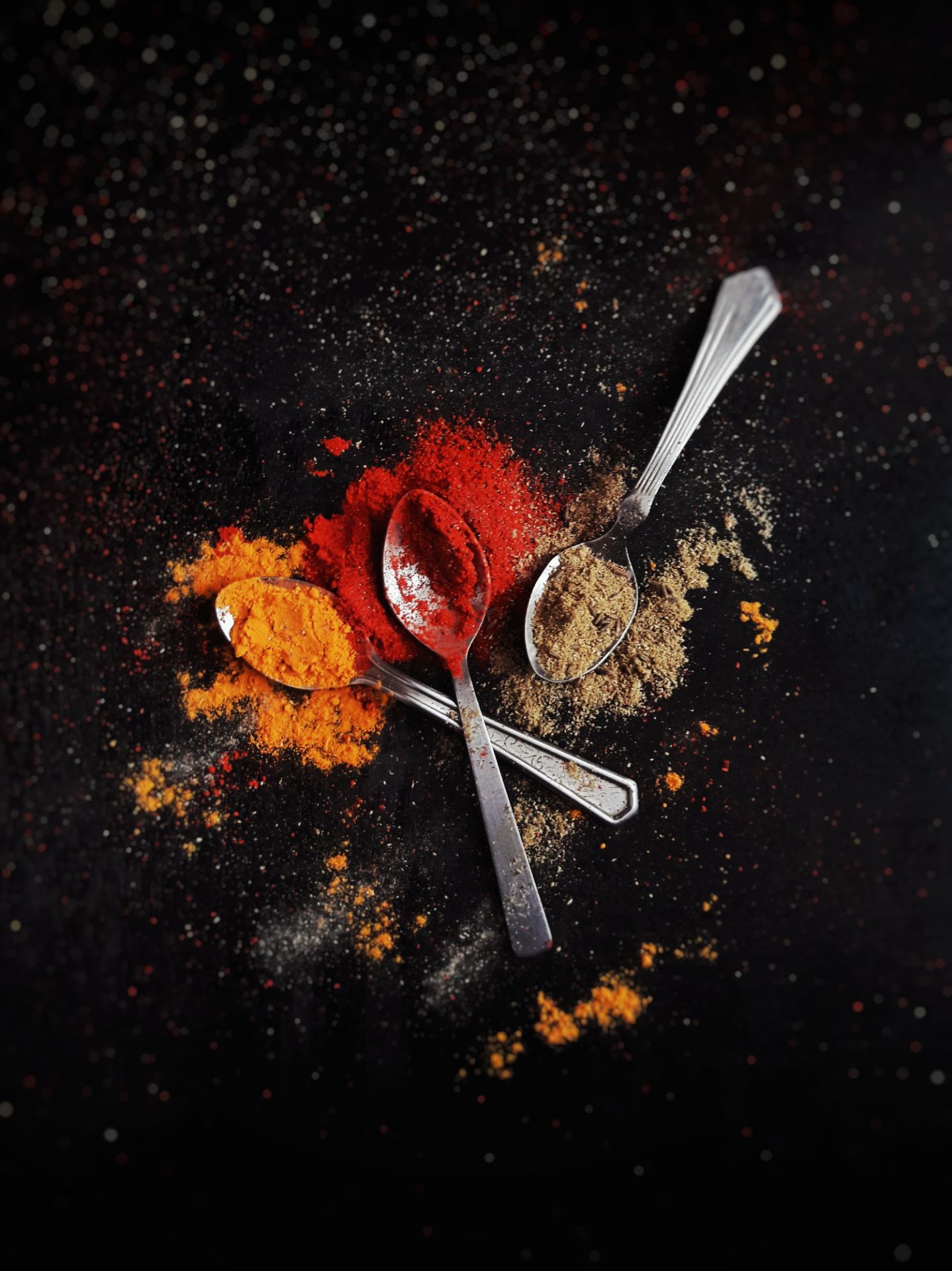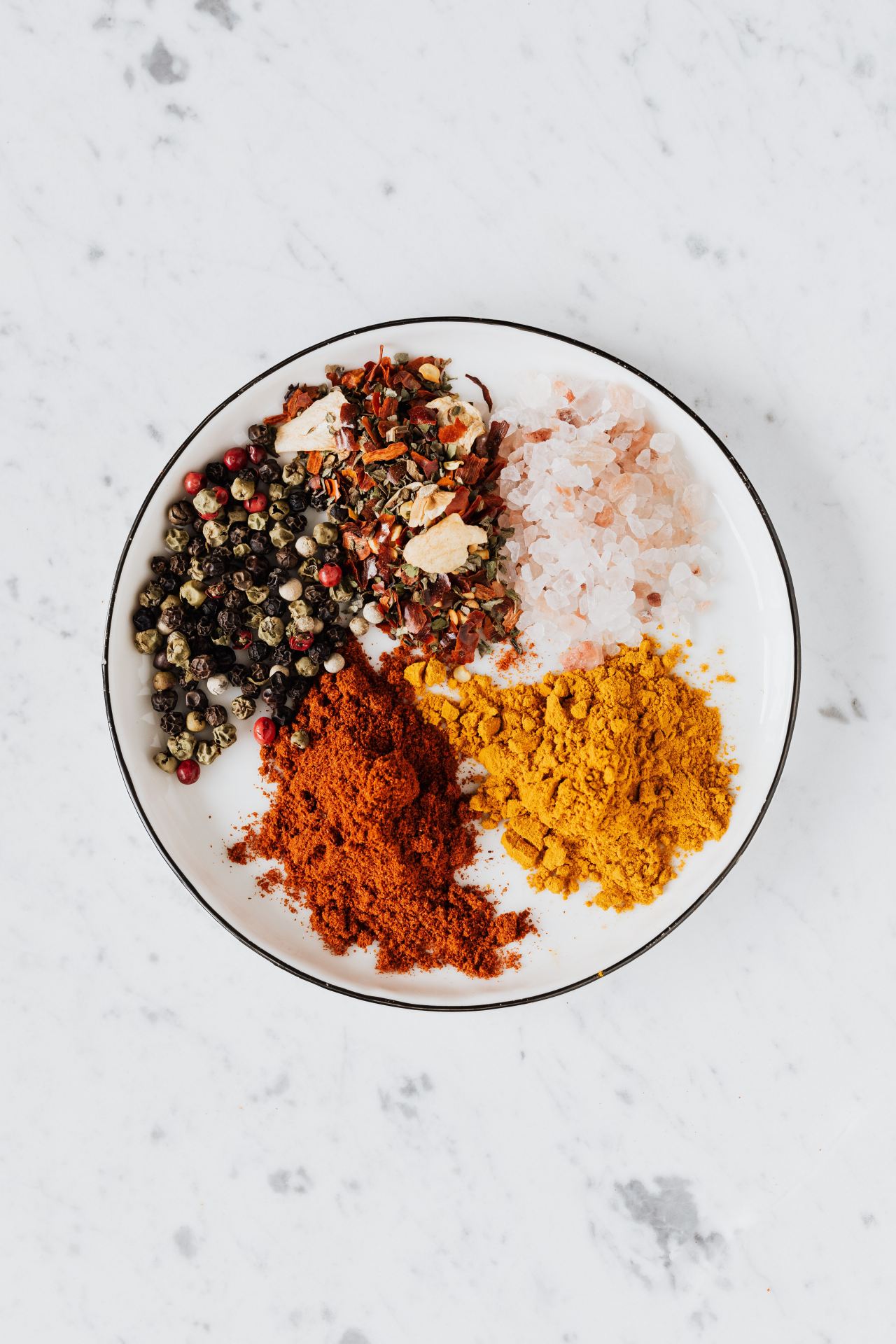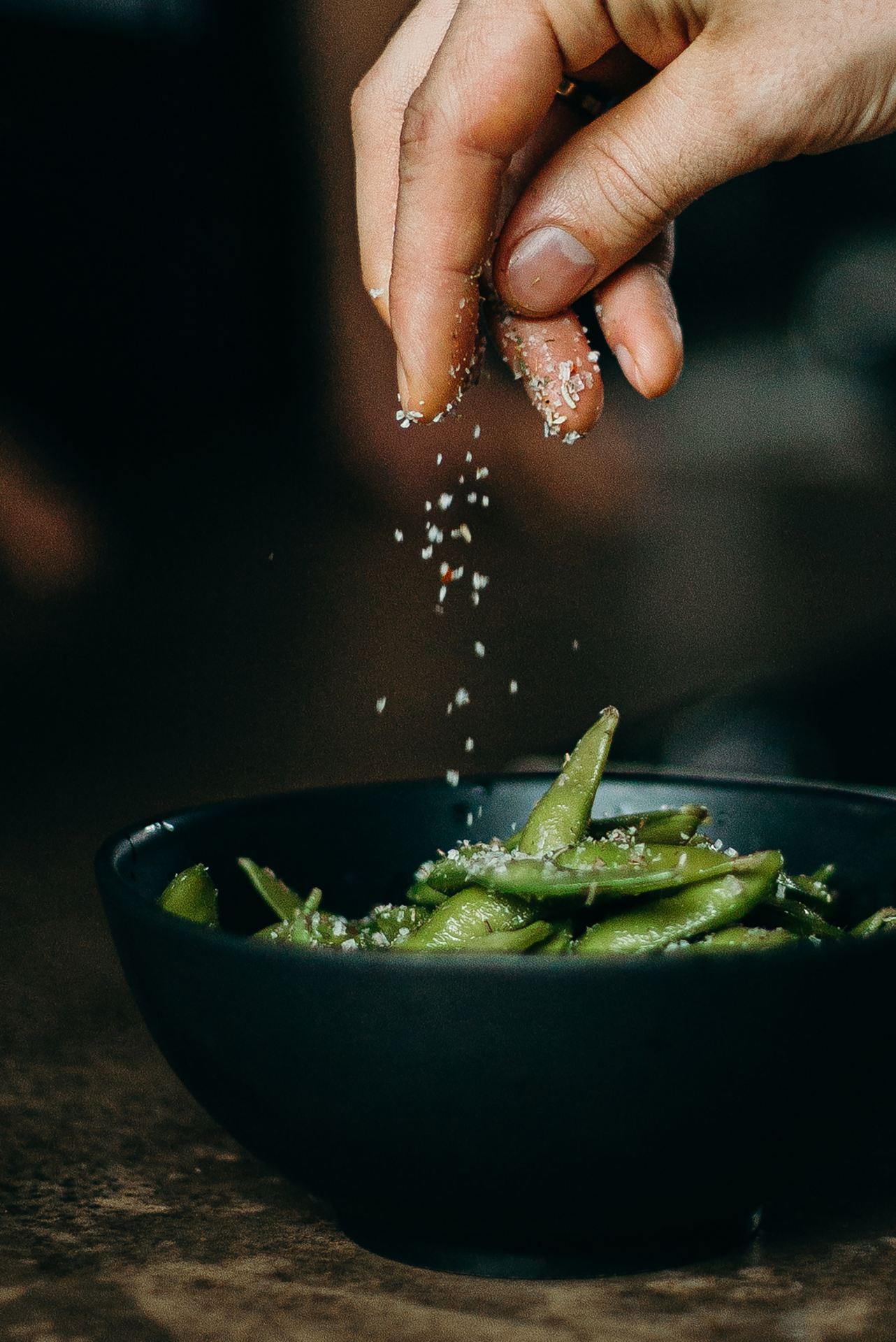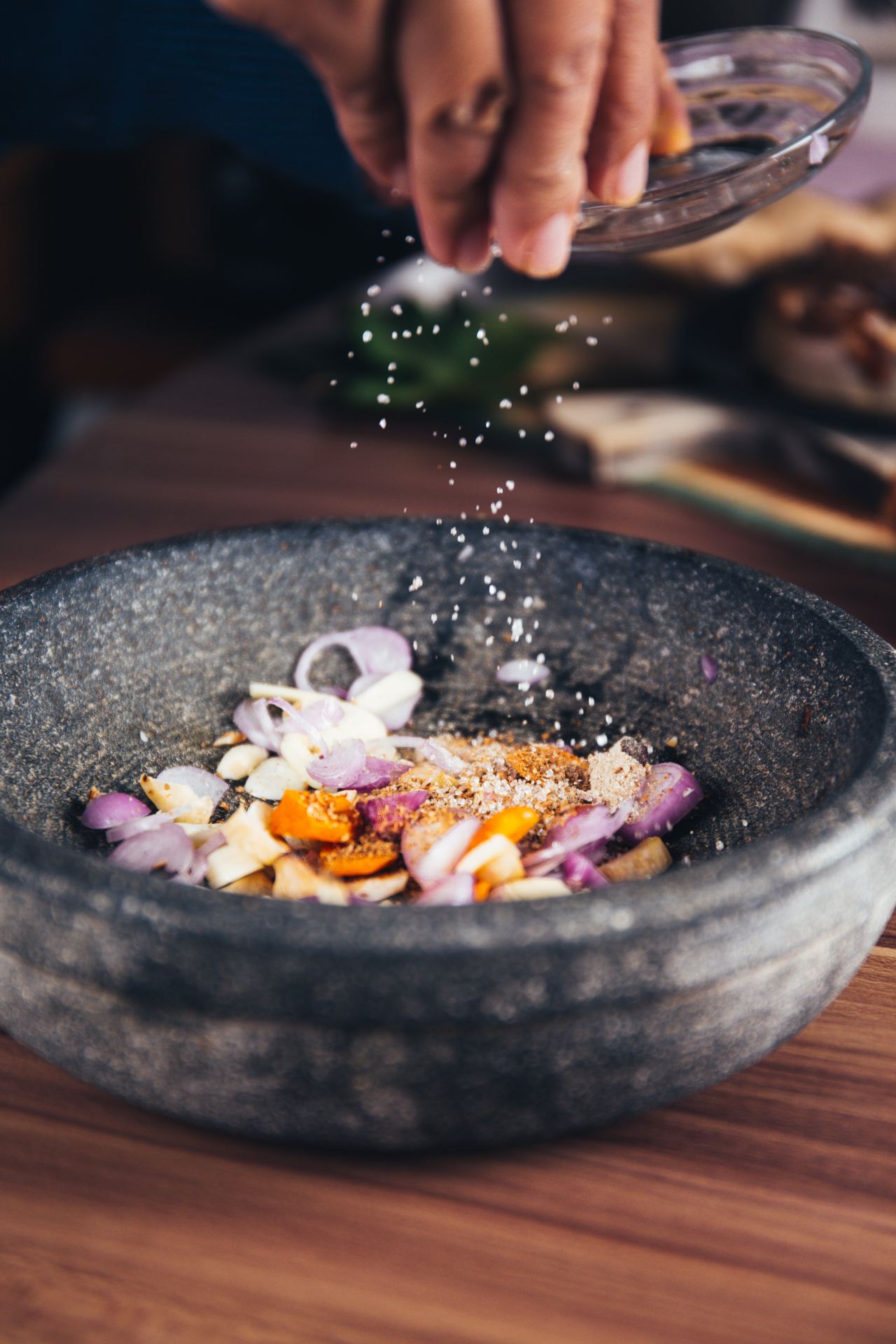2nd year Film and TV Studies. I have an unhealthy obsession with sitcoms and love to annoyingly recite the dialogue along with the characters in the show every time I rewatch them.

Before moving to university, many of us have never cooked a meal in our lives. So thinking about having to make your own meals when you first get to uni can be scary. But with a few easy tips and tricks, cooking can be fun and you can even learn to enjoy it! It’s also so much cheaper than going out for meals or ordering takeaways.
One of the most daunting parts of cooking is knowing how to season your food well. It can make or break your dish. Below I’ve compiled a list of 5 practical tips and tricks to help you season your food like a pro!

Never forget the salt
Salt is so crucial in any cooking. It’s the most basic way to bring life into any dish you make. You can use regular table salt for all the dishes you make. Unlike other coarse salts such as sea salt or kosher salt, you only need half the amount of salt – a little goes a long way! The best way to know how much salt a dish needs is to taste your food as you cook. And remember to salt your pasta or potatoes if you’re boiling them. Learn more about the different types of salt here!
Dried herbs first, fresh herbs later on
Using herbs is a great way to introduce an aroma of flavours to your dish. When using dried herbs remember to add them early on during cooking. This gives the herbs time to infuse and bring their flavours out in the dish. However, for using fresh herbs, they’re already bursting with flavours. Add them last to your cooking, such as tossing them into your salad or pasta. Learn more about the difference between dried and fresh herbs.

Taste your food
As I mentioned earlier, when you’re cooking it’s simpler to taste your food as you go but it’s a step that is often forgotten as well. It can be so embarrassing when you serve someone a dish you cooked and ask them to taste it before you have and realise your food is completely bland! To avoid that, always have a spoon by your side to taste and adjust your seasoning. When you’re following a recipe, add half of the seasoning suggested and add more eventually according to your taste buds. Learn more about how to taste your food.
Pre-season your proteins
If you want your meat to be bursting with a deep and rich flavour, season them hours ahead, or overnight even! This allows the salt enough time to penetrate into the meat and season it evenly throughout, including the centre. But this step really depends on the type of meat and the flavours you’re going for. Learn about pre-seasoning your proteins here!

Sugar can also be a seasoning
Believe it or not, sugar can also be used for making savoury dishes. Sugar helps to enhance the flavours of certain ingredients in the dish that can make it taste richer. It also helps to balance out the flavours and bring life to the dish, just like salt. When you’re making a marinara sauce and find that your tomatoes aren’t as ripe, adding sugar to it will make them taste ripe! Learn about using sugar in your cooking here.
I hope these tips help to give you more confidence to season your food well. Ultimately, cooking is all about trial and error, so don’t be afraid to go off the books and do your own thing!




